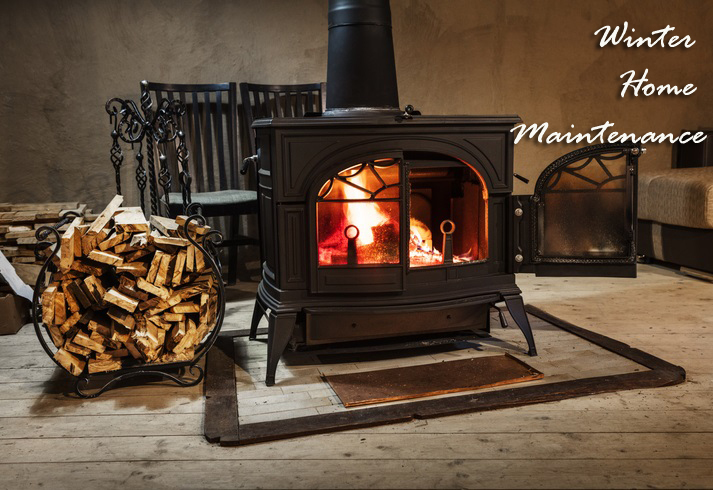
Winter Home Maintenance Tips
Winter home maintenance is an excellent way to ensure your home is prepared for colder weather, as it will help to keep you and your family safe and warm during storms and cold temperatures. Addressing any issues now will also prevent them from worsening and leaving you with a costly repair bill.
When checking over your home before winter, there are a few key things that you should examine:
Heating
-
It is vital that your heating system is in good working condition. If you have a boiler system, you should be getting it cleaned annually, whereas gas systems should be cleaned every three years. To reduce the cost of heating bills in the winter, you should also check that none of your doors and windows have gaps that are letting cold air in. Any gaps can be easily sealed with new weatherstripping.
Rainfall and Flooding
-
The winter often brings increased rainfall which can put more strain on your gutters, so check them now and remove any debris to reduce the likelihood of breakage and leaks, which can result in damage to your roof. Although cleaning out gutters is nobody’s favorite job, it significantly decreases the chances of having to replace your gutter altogether, which can be expensive and time-consuming.
-
Sump pumps protect against condensation build-up, meaning that without it, your basement could be susceptible to flooding and your foundations may get saturated and therefore damaged. Make sure your sump pump is in working order by checking the exit pipe for any debris and removing any blockages. Pour a few gallons of water into the sump pit to ensure it turns on.
Preventative Measures
-
Depending on where you live, the winter can bring severe storms, so prepare for these before it’s too late. Create a storm survival kit with all the essentials you may need, including bottled water, flashlights, and first-aid supplies. If you have your own generator, make sure it’s working as it should. It’s also a good idea to keep a solar-powered or battery-operated radio on hand so that you can continue to get weather updates.
-
Examine your front and back yard for any dead or loose tree branches which may become detached during a storm, as these could cause serious damage to your home. Smaller trees can be easily pruned without any help, but larger branches may require a professional.
-
Check any outdoor lighting, such as motion-sensor lights by your front porch. Being able to see your walkways clearly helps to prevent any trips or falls, particularly if it is snowing, so replace any burnt-out bulbs to ensure your lights will work throughout the winter.
At-Home Maintenance Welding Tips
When checking over your home in preparation for fall and winter, you may notice that some of your appliances have cracks or leaks. Don’t worry, many minor cracks can be easily repaired at home by welding the area.
Cast Iron Wood Stoves
If you have a cast iron wood stove to heat your home, you should always check it for cracks, as any damage can reduce its efficiency. Cast iron stoves are susceptible to damage due to heat exposure, but cast iron wood stove repair is easier than you may think.
The 72 burnt cast iron welding rod is a nickel-free electrode that has been crafted specifically for use with burnt or heat-affected iron. It easily clads heat-oxidized and oil-impregnated castings, and penetrates deep into burnt cast iron to securely anchor the weld, 72 is also crack resistant, making your wood stove less vulnerable to further damage.
Aluminum Radiators
Before winter sets in, you need to bleed your radiators to ensure they are working at full capacity. While you do this, you should also check for any leaks, as these can reduce the efficiency of your radiator.
Radiator leak repair can be performed easily using a handheld torch and either Super Alloy 1 or Super Alloy 5. Super Alloy 5 is a perfect color match for aluminum and is ultra-strong and corrosion-resistant to help prevent further damage to your radiator. Both alloys can be applied without disassembly, making aluminum radiator repair an easy task.
Super Alloy 1 can be used on all white metals and has a low melting temperature of 350°F to prevent warpage and base metal damage. It can then be plated, painted, or powder-coated to blend in with your radiator.
Metal Water Pipes
With temperatures dropping, water may freeze and expand inside metal water pipes which can cause them to burst. You can help prevent frozen pipes by insulating those which are exposed and setting your heat to no lower than 55°F.
However, if a pipe does burst, any small cracks can be repaired with SSF-6 Silver Solder. This cadmium-free, high-strength solder can be used to bond many metals including copper, brass, and steel. The rods are flux-coated to enable quick and easy soldering repairs.
For any at-home welding products, be sure to use the Heat Freeze Heat Absorption Paste for extra protection against heat transfer or damage. It is completely reusable with no shelf life, so it can last you all winter, no matter what your welding needs.
Now, your home is ready for whatever the winter throws at you!
